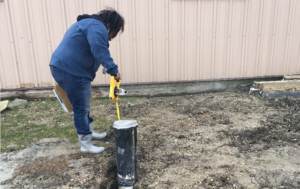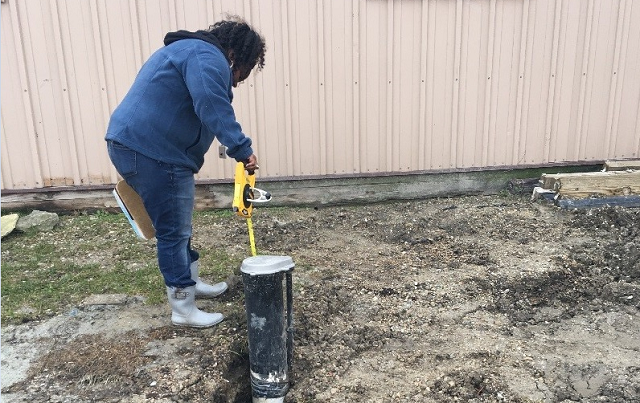
Tuesday September 4th is “Protect Your Groundwater Day. Brian Scanlon, an Environmental Geologist with the Will County Health Department, says this is a good reminder for private well owners to have their water tested on an annual basis.
“Maybe you had your water tested a couple of years ago, and you’re thinking, ‘we’ve had no problems since then, no one got sick, we must be just fine.’”
But Scanlon is quick to point out that despite the United States being known for some of the best quality groundwater in the world, this is a busy country where the situation around you rarely stays the same.
“Things are always changing,” Scanlon reminds us. “Farmers and homeowners use fertilizers and insecticides. The prevalence of these chemicals make private lab testing necessary. You don’t want to wait until you wake up one day and say, ‘gee, our water smells musty’ or ‘our water looks cloudy.’ Instead, have your water tested for bacteria and nitrates, so you can catch problems before those things happen.”
As the Centers for Disease Control and Prevention states, 30 percent of all available freshwater in the U S comes from groundwater, which is located below the surface of the earth, in spaces between rock and soil. Municipal groundwater systems are protected by EPA regulations, such as requiring monthly inspections. But as Scanlon points out, it’s up to the landowner when it comes to private water wells. And knowing the history of your local area can be an asset as well.
“For example, one Will County city went to Lake Michigan water for their municipal supply about a decade back, after some difficulties with TCE (trichloroethylene), which has been connected to a variety of health issues. Therefore, the folks in that area still on private wells needed to be especially careful, and definitely test on an annual basis. So it’s important to know your region’s water history.”
Scanlon says Will County residents are welcome to stop by any of the three Will County Health Department locations, pick up the bottles and instructions they need, and return with sample water from their wells for testing. Lab hours at the main branch (501 Ella Avenue, Joliet) are 8:30 AM to 4 PM Monday through Thursday, and 8:30 AM to Noon on Fridays or the day before holidays. Lab hours at the Eastern Branch Office (5601 W. Manhattan-Monee Road in Monee) are 8:30 to Noon Monday through Friday, and Northern Branch Office lab hours (323 Quadrangle Drive in Bolingbrook) are 8:30 AM to 11 AM Monday through Friday.
In addition to having the water itself tested, Scanlon reminds private well owners to examine the physical condition of their wells on an annual basis as well. While the county has requirements, such as 50 feet of space between water wells and septic tanks, there are certain things that need to be checked with the naked eye. “Make sure the well seal cap is tight. And make sure that the conduit underneath the ground properly encases the electric power source alongside the well.
“You should also,” Scanlon continued, “bring up to code any wells with buried seals, in addition to wells located in pits that show signs of flooding where the casing needs to be raised. In summary, if you are not comfortable with what you see, contact a licensed well contractor. Some of the older wells were not built to modern standards, and may be cased differently or may have pinholes in the pipes.”
And as an important safety note, Scanlon also added that all unused and abandoned wells need to be properly sealed by a licensed well contractor. An application is required by the Will County Health Department for a well sealing, with the service offered at all three Health Department locations.
For more on protecting your groundwater, go to http://wellowner.org/pygwd/. For more on Will County Health Department Environmental Health services, go to willcountyhealth.org.

